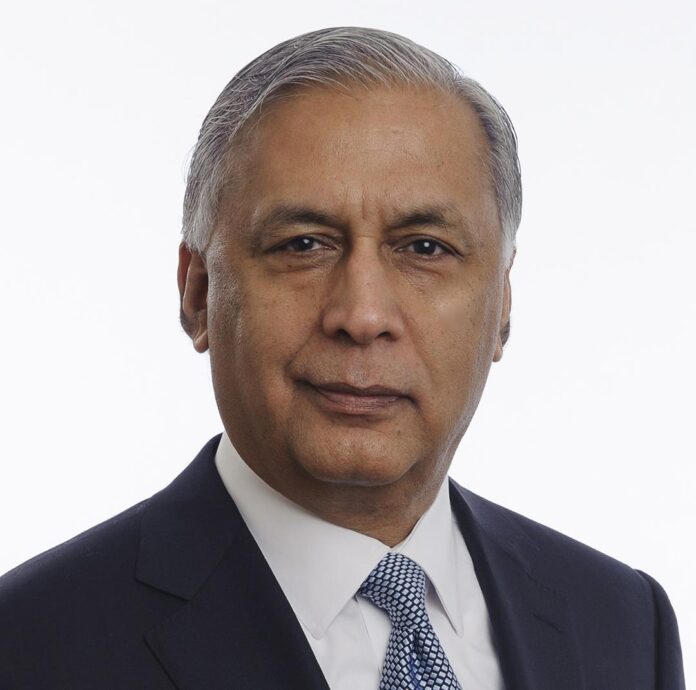Shaukat Aziz was born on March 6, 1949 and brought up in the southern city of Karachi. He received his early education from St. Patrick School at Karachi and Public School at Abbottabad, graduated from Gordon College, Rawalpindi in 1967 and achieved MBA in 1969 from the Institute of Business Administration, Karachi in 1969. The same year, he started his career from Citibank as credit officer in Karachi and served in various countries including Greece, the United States, the United Kingdom, Malaysia and Singapore. After being promoted to many positions, as Citibank’s head of Corporate and Investment Banking for various regions, Corporate Planning Officer, Citicorp, country Manager for Citibank in Malaysia and in Jordan, a board member of Citibank subsidiaries and of several non-profit organizations, he was appointed Executive Vice President of Citibank in 1992. Before taking leave from Citigroup, he was the head of its global Private Banking division and progressed to a senior post with the bank in New York at the height of a 30-year career in global finance.
He was appointed as Finance Minister by the Government of Pakistan in November 1999 shortly after the army chief’s 1999 military coup with the task of revitalizing the sagging economy. As the finance minister, Shaukat familiarity with a global banking came as an advantage. He was given the responsibility for managing country Finance, Economic Affairs, Statistics, Planning and Development and Revenue Divisions. He is also Chairman of Economic Coordination Committee of the Cabinet; Chairman, Executive Committee of National Economic Council and Chairman, Cabinet Committee on Privatization. He became a Senator in 2002.
Shaukat Aziz was criticized for his policy of downsizing in the public sector but he asserts that he made these institutions viable while they were on the verge of collapse. Another allegation against Shaukat Aziz is that as a Finance Minister his policies were not aimed at alleviating poverty as he seldom offered relief to the poor sections of the society. But it is claimed by many analysts that he achieved his target and strengthened the country’s economic base; the recent economic figures prove his policies have worked. He improved the country’s growth rate by 6.4% a year. For the first time in Pakistan’s history revenue collection targets have been met in his tenure and allocation for development has increased by about 40 per cent though this success is attributed largely to debt reduction and securing of hundreds of millions of dollars in loans and aid in return for support in the US-led war on terror. Moreover, despite a series of internal and external distresses, economic situation of Pakistan improved significantly and reserves increased to US$ 10.56 billion on June 30, 2004 as compared to US$ 1.2 billion Oct 1999. Exchange Rate became stable and predictable. Inflation rate dropped to 3.5% in last 3 years as against 11-12% in 1990.
He is appreciated by members of his personal staff as a hard worker who always maintained a strong financial discipline. He gave special attention to the development work at Gwadar Port and played an important part in developing other parts of Gwadar and making it an important city in the future. He was promptly nominated by the ruling party for the position of Prime Minister after Zafarullah Khan Jamali resigned. As he had to secure a seat in parliament – a requirement to take up the top post“ Shaukat Aziz easily won two seats with a great margin from Attock and Tharparkar in the by-elections.
Mr Aziz is a soft-spoken, smartly dressed and married with three children.
This article was last updated on Friday, October 08, 2004






